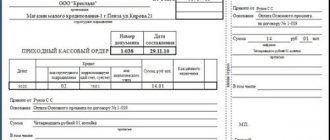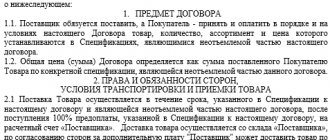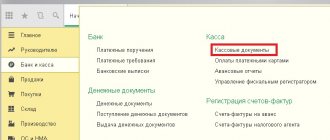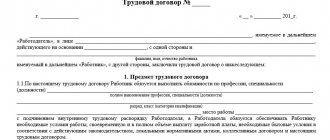Free financial assistance from the founder - how to formalize it correctly?
Free assistance from the founder is the deposit of funds into the company account or the transfer of other property for certain purposes: increasing working capital, paying off financial obligations, expansion or modernization, etc.
To ensure that the tax authorities do not consider the deposited amount as profit and withhold tax from it, certain conditions must be met. Any of its founders, that is, both individuals and legal entities, can provide financial assistance to the organization. But at the same time, the Tax Code of the Russian Federation clearly establishes a list of cases when property received free of charge may not be included in the tax base:
- The individual who contributes the funds has a share in the authorized capital of more than half.
- The legal entity that contributes the funds has a share in the authorized capital of more than half.
- A legal entity that receives funds free of charge has a share exceeding 50% in the authorized capital of the organization that contributes the funds.
This list can be found in paragraphs. 11 clause 1 art. 251 Tax Code of the Russian Federation. In all other cases, assistance that is expressed in monetary units must be included in the tax calculation.
The Federal Law “On Accounting” dated December 6, 2011 No. 402-FZ requires that all receipts to the organization’s current account and cash desk, including gratuitous assistance, be documented.
The most common method of gratuitous assistance is the conclusion of a gift agreement or gratuitous financial assistance between the one who contributes money and the one who receives it.
Also, the founder can use funds to increase the authorized capital, but in this case, his share must be increased (naturally, except in the case when the company has one founder), and the assistance can no longer be considered gratuitous. In this case, registration occurs in the following way:
- An application is drawn up indicating the amount and conditions for its contribution to the authorized capital.
- Other owners express their consent and decide to make amendments to the company's charter.
- All changes (re-registration of shares) must be made within 6 months after the decision is made.
In any case, before providing assistance, the founder must agree on this at a general meeting (or make a decision individually, if there is only one founder).
The agreement is drawn up in writing, in two copies - one for each party.
In order for a document to be drawn up to qualify as a contract of gift or gratuitous assistance, it must contain the following features:
- The subject of the contract must be specified as precisely as possible. The monetary amount is indicated in numbers and words.
- The fact of gratuitousness. That is, it must be indicated that assistance is provided only unilaterally; the receiving party should not have any obligations.
The agreement on gratuitous assistance of the founder, a sample of filling, can be viewed below.
It is worth mentioning separately about the agreement when assistance is provided by one legal entity to another. In this case, a gift agreement cannot be made - it may be considered void.
This follows from the provisions of Article 575 of the Civil Code of the Russian Federation, which prohibits gift agreements between legal entities if the subject of the agreement (including funds) is valued at more than 3,000 rubles.
In this case, you can use the following methods:
- Conclude a free financing agreement.
- Conclude an agreement on an interest-free loan, and then not claim it and write off overdue payments (Article 415 of the Civil Code of the Russian Federation). Borrowed funds are not taxed, as are interest savings, but the forgiven loan amount, which forms non-operating income for the borrower, is subject to taxation. A tax base is not formed when funds are received from a founder who owns at least 50% of the borrower's authorized capital.
- Contribute funds to increase the authorized capital. In this case, the organization that contributed the money must increase its share in the authorized capital.
The founder has the right to provide financial assistance to his company. The law does not establish a list of purposes for which this money can be spent. In accordance with the law, funds received must be documented.
If the founder who contributed the assistance is an individual, then a gift agreement can be concluded with him. In cases where assistance is provided by another organization, it cannot be formalized by donation.
In some cases, the amount of money contributed free of charge by the founder is not taxed.
{amp}gt; Accounting {amp}gt; Capital{amp}gt; Statutory {amp}gt; Documents of the Criminal Code {amp}gt; Samples of drawing up an agreement on financial assistance from the founder of an LLC (gratuitous and repayable temporary)
April 16, 2021 Criminal Code documents
During the economic crisis, most companies experience financial instability. In times like these, credit institutions suspend issuing loans, and help from the founder of an enterprise becomes in demand and relevant.
The contribution can be made to property or as financial assistance to the company. Any founders (individuals and legal entities) have the right to support their own company.
When depositing additional funds, in order not to increase the income tax base, you must adhere to the indicated standards when receiving gratuitous property:
- the founder (individual or legal entity) has more than half of the authorized capital;
- an enterprise receiving funds free of charge must have a share of the authorized capital exceeding 50% of the contributing company's funds.
The list of conditions is prescribed in Article 251 of the Tax Code of the Russian Federation (clause 11, clause 1). The remaining contribution, expressed in monetary units, must be included in the tax calculation.
Transferred financial assistance from the founder includes:
- rights to movable and immovable property;
- intellectual property;
- cash;
- works and services;
- securities.
As goals of financial assistance (there are no restrictions at the legislative level), an enterprise can designate:
- increase in current assets;
- coverage of incurred losses;
- payment of wages to employees;
- repayment of obligatory payments to the budget;
- replenishment of the reserve;
- acquisition of assets.
Article 209 of the Civil Code of the Russian Federation (clause 2) allows the company, after receiving money into ownership, to independently dispose of it.
Law No. 402-FZ of December 6, 2011 regulates the documentation of any receipt of funds to the company’s current account or cash desk; gratuitous assistance is no exception.
The most common method of registering a deposit is signing a gift agreement or gratuitous financial assistance.
To contribute funds or property, the founder must coordinate his actions at a general meeting of company participants, if he is not the sole owner.
The agreement is drawn up in one copy for each party.
In addition to the required details when drawing up this kind of document (name of the organization, full name of the founder, place and date of drawing up), designating the agreement as a contract of gift or gratuitous assistance, it is necessary to write down the following information in the text of the form:
- the most precise subject of the contract is recorded;
- the transferred amount is written down in words and numbers;
- the fact of gratuitousness, the provision of assistance only unilaterally, and the absence of obligations on the part of the receiving party are stated.
But there are some subtleties when drawing up such a document.
The Civil Code (Article 575, paragraph 1) does not accept the execution of a gift agreement if another commercial company acts as the founder; such transactions between commercial firms are prohibited (gifts up to 3000 are permitted).
It is also necessary to take into account the share of the individual founder in the capital of the company to ease the tax burden. This rule in relation to things applies similarly to the transfer of property that was in the ownership of the founder for 1 year.
Benefits apply to companies with a simplified tax system that do not remit income tax (Article 346.15 of the Tax Code of the Russian Federation).
Free financial assistance from the founder in 2021 can also be formalized by a gift agreement (providing so-called financial assistance). However, this option, despite the need to prepare only one document, has its limitations.
In particular, due to the provisions of paragraph 1 of Article 575 of the Civil Code of the Russian Federation, it is unacceptable if the founder of a commercial organization is another commercial company, since gift transactions between commercial organizations are prohibited, with the exception of gifts worth up to 3,000 rubles.
Another disadvantage of this method is the need to take into account the size of the share of a particular founder in the LLC. Thus, by virtue of subparagraph 11 of paragraph 1 of Article 251 of the Tax Code of the Russian Federation, if the share of this founder exceeds 50% of the total authorized capital of the organization, the funds transferred as gratuitous assistance are not subject to income tax.
In addition, it is important to remember that this rule regarding things (this restriction does not apply to money) also applies when the property transferred by the founder is not transferred to other persons within 1 year. Such a “privilege” of the founder, by virtue of the provisions of subparagraph 1 of paragraph 1.1 of Article 346.15 of the Tax Code of the Russian Federation, also applies to organizations with a simplified tax system that do not pay income tax in the general manner.
If the founder providing assistance does not own shares in the amount of more than half of the total authorized capital, the transferred funds, by virtue of the provisions of paragraph 8 of part 1 of Article 250 of the Tax Code of the Russian Federation, will fall under non-operating income and, therefore, will be included in the taxable base.
In addition to contributing funds to the authorized capital of the company on a gratuitous basis (non-repayable assistance), the founder can transfer financial assistance temporarily, with the condition of subsequent repayment. Some people call such an agreement an agreement of temporary financial assistance, but the Civil Code of the Russian Federation does not contain such an agreement.
In the case under consideration, an ordinary loan agreement can be used (more information about the loan can be found in the corresponding article), under which, by virtue of Article 807 of the Civil Code of the Russian Federation, the borrower is an organization represented by its director, and the lender is the founder.
A loan agreement, like a gift agreement between a citizen (organization) and another organization, by virtue of Article 161 of the Civil Code of the Russian Federation must be written.
Situation in which the Agreement on the provision of gratuitous financing is applicable:
Sometimes financial difficulties arise in the economic activities of a legal entity, which can be resolved with financial assistance.
At the same time, obtaining, for example, a bank loan is impossible or impractical. In this situation, financial assistance to the enterprise can be provided by its founder. The founder can provide financial assistance not only in cash, but also in property, securities, property rights and other types not prohibited by law. When transferring funds or other valuables from the founder to an enterprise in order to improve its financial position, a gratuitous financing agreement is concluded. In fact, gratuitous financing is a donation of funds. It should be noted that current legislation prohibits donations between commercial organizations. At the same time, it is not prohibited to conclude a gift agreement between legal entities that are not commercial organizations, as well as between individual entrepreneurs, or if the parties to the gift agreement are an individual entrepreneur and a legal entity, including a commercial organization. However, if the prohibition on gifts between commercial organizations is violated, there is a risk that the court will declare such an agreement void.
In this situation, an Agreement on the provision of gratuitous cash financing is presented. It should be noted that if gratuitous financing is provided by the founder of the organization with his own funds on the basis of his written decision, such financing must be carried out on the basis of irrevocability. The founder - an individual can provide financial assistance by donating money, but in the case of assistance from the founder - a legal entity, it is recommended to enter into a gratuitous financing agreement, which must indicate for what purpose the money will be used (for example, paying off tax debts to creditors or employees, replenishment of assets, etc.) received as gratuitous financing. The absence of the sign of free receipt and disposal of the gift will protect against recognition of the transaction as invalid.
Free financial assistance from the founder since 2018 - general questions
Since 2021, the procedure for providing free assistance to the organization by its participants has not changed. Transferring a participant's own funds (both a citizen and a legal entity) to the company's current account is a standard procedure carried out for a variety of reasons:
- to repay the organization's debt on its obligations;
- acquisition of necessary property;
- expansion of activities, etc.
At the same time, replenishing the organization’s account usually does not cause technical difficulties for the founder. However, due to the requirements of Article 9 of the Law “On Accounting” dated December 6, 2011 No. 402-FZ, the organization whose account is replenished must correctly reflect the fact of receipt of funds so that they are not regarded by regulatory authorities as revenue with subsequent payment of tax payments in full .
The purposes of transferring the founder’s money to the company’s accounts may include:
- contribution to the authorized capital of the LLC in accordance with the requirements of Article 19 of the Federal Law “On Companies...” dated 02/08/1998 No. 14-FZ;
- transfer of money to the account as a gift (gratuitous assistance) without changing the size of the participants’ shares, for example, by virtue of Article 572 of the Civil Code of the Russian Federation;
- provision of temporary repayable assistance in the form of a loan in accordance with Article 807 of the Civil Code of the Russian Federation.
When choosing one of the above methods, it is recommended to pay attention to 2 points:
- The complexity and length of the paperwork process.
- The possibility of exempting an organization from paying tax on funds contributed by a participant, which is often a determining factor when carrying out such operations.
The founder’s decision to provide gratuitous assistance
209 of the Civil Code of the Russian Federation, after a company receives money into ownership, it has the opportunity to dispose of it at its own discretion.
There are a number of ways you can help your organization:
- transfer of property or money into the ownership of a company.
- temporary financial assistance from the founder (loan);
When choosing one method or another, it is necessary to assess the financial risks and know the tax consequences of each transaction. The easiest way to financially support an enterprise is to provide free assistance from the founder.
Such an operation must be mandatory reflected in accounting (paragraph 10, clause 7 of PBU 9/99). It is necessary to register the receipt of funds, for which the posting is made: Dt 51 Kt 91, subaccount “Other income”.
After this, the company can direct the funds to their destination.
All agreements and agreed upon decisions are recorded in the minutes of the meeting. The next stage of registration of assistance, including in the form of transfer of property, is the conclusion of one of the following agreements: A loan agreement is included in the preferential category of financial assistance in terms of taxation. No interest is charged on the money received.
The funds themselves are transferred on a repayable basis. Therefore, profit tax is not calculated on this money.
With this form of financial support, it is important to consider the following factors:
- the transferred funds do not in any way affect the size of the authorized capital;
- these finances do not increase or decrease the share of any participant in the legal entity;
- the organization receives money without additional conditions.
Registration of gratuitous assistance The decision to provide monetary assistance on a gratuitous basis requires contractual formalization. IMPORTANT INFORMATION! The Tax Code of the Russian Federation does not impose income tax on transferred funds if the participant of the legal entity that provided assistance owns half or more of the authorized capital of the organization.
Also, when accepting help from the founder, you can stipulate that the loan is interest-free (Article). This means that in the future you will have to include these costs in expenses under the simplified tax system.
A loan agreement can be concluded for a fairly long period; this is not limited by law. If the deadline for returning the money has come, but there is nothing to return, then you can extend the contract.
Property or funds received under a loan agreement are not taken into account in income under the simplified system (subclause
1 clause 1.1 art. 346.15 et sub. 10 p. 1 art. 251 Tax Code of the Russian Federation)
Compliance of the solution with the sample presented above will help you avoid annoying mistakes and accounting regulations (see, for example, clause 10 of the Accounting Regulations “Accounting for Fixed Assets” PBU 6/01, approved by Order of the Ministry of Finance of Russia dated March 30, 2001 N 26n) , and tax legislation [p. 8 tbsp.
250 of the Tax Code of the Russian Federation (TC RF)] the gratuitous receipt of property by commercial organizations is not prohibited. Consequently, such transactions cannot include the prohibition on donating property exceeding five times the minimum wage from one commercial organization to another.
Thus, we can conclude that an agreement for the gratuitous transfer of property, which is not a gift agreement, is one of the few types of contractual relations not provided for by the Civil Code of the Russian Federation.
In other words, the founder transfers property to his organization free of charge, but does not give it away.
There are three ways to receive funds from the founder.
In this case, it is necessary to formalize the decision of the general meeting of the company’s participants, then all funds received can be withdrawn from taxation.
You can choose any method, having previously assessed its pros and cons.
The most common option is when funds are received from the founder under a loan agreement in writing (clause 1 of Article 808 of the Civil Code of the Russian Federation)
- securities;
- real estate;
- property rights.
- movable property;
- cash;
- intellectual property;
- works or services;
Purposes for which the company can spend financial assistance from the founder.
The law does not limit it in any way, so money can be spent for any purpose that does not contradict the law, for example:
- salary payment;
- repayment of debts on payments to the budget;
- fulfilling obligations to creditors and preventing bankruptcy;
- replenishment of reserve funds;
- coverage of losses.
- acquisition of assets;
- increase in working capital;
According to the provisions of paragraph.
- the subject of legal relations is the gratuitous transfer of money into ownership, where one party transfers money into the ownership of the other, and the second party undertakes to promptly return the same amount of money.
- repayment of the loan is ensured only by a penalty; other methods of security provided for by the legislation of the Republic of Kazakhstan (for example, pledge, guarantee, surety, etc.) are not taken into account in the provisions of the Financial Assistance Agreement.
- Lender - a person (individual or legal entity, or individual entrepreneur) who undertakes to transfer money into the ownership of another party free of charge;
- Borrower is a person (individual or legal entity, or individual entrepreneur) who undertakes to accept and promptly return the same amount of money to the other party.
- condition on the subject of the loan, i.e.
Unlike accounting, in tax accounting such an operation is not always reflected - the rule of controlling interest applies here (subclause 11, clause 1, article 251 of the Tax Code of the Russian Federation)
If the percentage established under the agreement exceeds the refinancing rate by more than 20%, then the company is subject to VAT on the amount paid in excess of the debt.
That is why the usual practice is to conclude an interest-free loan agreement between the founder and the LLC, and the question of how to compensate the creditor for his financial assistance is decided between the participants of the company. At a general meeting, they can agree on a temporary increase in the lender's share of total income.
The bank will need to collect a whole bunch of documents to confirm the reliability, integrity and creditworthiness of the company. And indicate the purposes for which this loan is issued. And the bank can refuse for reasons known only to it. It turns out that the loan agreement has many advantages. There are also disadvantages. First, the loan must be repaid.
The topic of financial assistance from the founder in favor of the organization is periodically discussed, including at the Regforum. I decided to collect all the information found to date and publish it as an educational program.
I think many will be interested.
To begin with, I would like to point out that the word “founder” used in the title was used specifically, since very often he is identified with a participant in a business company, which is not always correct.
However, if the founder of the same LLC remained its participant, and no other participants were added, then it is quite possible to call him a founder; accordingly, it is quite possible to call this “assistance of the founder.” In the special case described in paragraphs.
According to Art. 39 of Law N 14-FZ in a company consisting of one participant, decisions on issues falling within the competence of the general meeting of company participants are made by the sole participant of the company individually and are drawn up in writing.
Thus, in order to document the contribution of the sole participant of the company, it is necessary to formalize in writing the decision of the LLC participant, in which we recommend reflecting: the purpose of making an additional contribution, the amount of the additional contribution, the form of making an additional contribution. According to paragraph 8 of Art. 250 of the Tax Code of the Russian Federation, non-operating income is recognized as income in the form of property received free of charge, except for the cases specified in Art.
251 Tax Code of the Russian Federation. In this case, the received property is not recognized as income for tax purposes only if, within one year from the date of its receipt, the specified property (except for cash) is not transferred to third parties.
reliable legal support for an accountant Free financing agreement 1.1.
1.2. The total amount of financing is ___ (_____) rubles __ kopecks.
2.1. The Founder assumes responsibilities for one-time targeted gratuitous financing of the Organization.
2.2. The organization assumes the responsibility to use funding exclusively for the stated purposes, namely, payment of wages and taxes and contributions from it.
In this case, when reflected in accounting - the primary document is the Decision of the participant of the Limited Liability Company
- Provide free financial assistance to the Company in the amount of _____ (____________) rubles 00 kopecks due to the insufficiency of the Company’s working capital.
This Decision is drawn up in 2 copies, one of which is kept in the Company, the other - with a member of the Company Member LLC "_____________" ______________/____________./
That is, transfer fixed assets, materials, goods, and intangible assets to the organization.
The accounting procedure in this case depends on the type of property. For more information about this, see: If financial assistance from a participant is received in cash, then the accounting procedure depends on the period in which it was received:
- during the reporting year - for any purpose;
- at the end of the reporting year - to cover the loss generated in account 84 “Retained earnings (uncovered loss)”.
- condition on the subject of the loan, i.e.
- to repay the organization's debt on its obligations;
- acquisition of necessary property;
- expansion of activities, etc.
Contribution to the authorized capital
When contributing funds to the authorized capital, you should remember that, by virtue of subparagraph 3 of paragraph 1 of Article 251 of the Tax Code of the Russian Federation, the organization should not include the funds received in this way into the taxable base. Both an existing participant (citizen or organization) and a person intending to become a participant in this company by virtue of the provisions of paragraph 2 of Article 19 of Federal Law No. 14 can deposit money in this way.
The procedure for making a contribution is as follows:
- A participant (or a third party) must submit an application for making an additional contribution to the authorized capital (or accepting him as a member of the organization), which should indicate:
- size and composition of the deposit;
- the procedure and deadline for its submission;
- the size of the share that the participant or third party plans to acquire during this transaction.
- Other participants of the company at their meeting must approve the application with their decision to increase the authorized capital, and also decide to amend the company’s charter in connection with a change in the percentage of shares of other participants.
After the company makes the above decisions, the participant must pay in full the amount indicated in the application within 6 months. After making a share, by virtue of clause 2.1 of Article 19 of Federal Law No. 14, the director of the company is obliged, within 1 month, to submit an application to the body maintaining the Unified State Register of Legal Entities to make changes to the register, as well as documents confirming the fact of full payment of the share by the participant. The procedure for making a contribution will be considered completed after state registration of changes made to the charter.
Temporary financial assistance from the founder - how to apply?
- An exact indication of the amount of money being loaned or a list of other unused items that can be returned in the same quantity.
- Loan repayment.
Due to the requirements of Article 809 of the Civil Code of the Russian Federation, the loan agreement is assumed to be reimbursable, that is, the borrower has an obligation to repay the loan with interest specified in the agreement or calculated at the refinancing rate of the Central Bank of the Russian Federation, unless otherwise specified in the agreement. That is why the parties, if we are talking about gratuitous assistance, must indicate in the agreement that the loan provided by the company is interest-free.
The term under the loan agreement, according to Article 810 of the Civil Code of the Russian Federation, is not a mandatory condition. This means that the loan can be provided for an indefinite period (for example, until the organization’s financial situation improves and it can repay the funds received).
If you have any unresolved questions, you can find answers to them in ConsultantPlus. Full and free access to the system for 2 days.
If there is no exact repayment period in the loan agreement, the lender has the right to demand that the transferred money be returned back at any time. In this case, the borrower is obliged, by virtue of paragraph 1 of Article 810, to return the funds received within 1 month from the date of receipt of the relevant notification. However, due to the dispositive nature of the provisions of this paragraph of the article, this period may be extended in the interests of the company.
The advantage of this method of providing financial assistance is that there are no tax obligations for both the organization and the founder when returning funds.
An organization, in accordance with subparagraph 10 of paragraph 1 of Article 251 of the Tax Code of the Russian Federation, should not include in the taxable base the funds provided to it under loan or credit transactions. A similar rule is enshrined in paragraph 1.1 of Article 348.15 of the Tax Code of the Russian Federation - it applies to organizations operating under the simplified tax system, which also have the right not to include borrowed funds in the list of income they receive.
As for the founder himself, by virtue of Article 38 of the Tax Code of the Russian Federation, the funds he received back from the company do not fall under the concept of income, and therefore cannot be subject to taxation.
Sample financial assistance agreement between legal entities – Human Resources Management
LLC in accordance with the requirements of Article 19 of the Federal Law “On Companies...” dated 02/08/1998 No. 14-FZ;
- transfer of money to the account as a gift (gratuitous assistance) without changing the size of the participants’ shares, for example, by virtue of Article 572 of the Civil Code of the Russian Federation;
- provision of temporary repayable assistance in the form of a loan in accordance with Article 807 of the Civil Code of the Russian Federation.
- The complexity and length of the paperwork process.
- The possibility of exempting an organization from paying tax on funds contributed by a participant, which is often a determining factor when carrying out such operations.
- date and place of conclusion of the loan agreement from the founder;
- general provisions indicating the parties to the agreement;
- subject of the agreement - fixes the loan amount or the amount of property and the terms for the payment of interest.
Contribution to the authorized capital When contributing funds to the authorized capital, you should remember that, by virtue of subparagraph 3 of paragraph 1 of Article 251 of the Tax Code of the Russian Federation, the organization should not include the funds received in this way into the tax base. Important Provision of temporary assistance to a company is formalized, as a rule, by an interest-free loan agreement. There is no need to pay VAT or income tax on such a transaction.
18th century 250 of the Tax Code of the Russian Federation). If the founder forgives the loan to his company, such an operation is regarded as a transfer of property free of charge, i.e., a donation. If there are no grounds specified in sub. 11 clause 1 of Article 251 of the Tax Code of the Russian Federation (i.e. the founder’s share is less than 50%), this will also be a reason to charge additional income tax.
How to draw up a loan agreement between the founder and LLC (sample) The agreement is concluded between the founder-individual and the company represented by the director. ATTENTION! If the director and founder are one person, then he must sign the agreement twice: for the lender and for the borrower. The document must indicate the following information:
IMPORTANT! If the loan is provided by the founder in foreign currency, then the transaction is subject to exchange control.
As a result, the person who provides it does not have the obligation to pay VAT. The company that received the money also does not have an object of taxation, since its receipt is not related to payments for products or services (clause 2 of Article 153 of the Tax Code of the Russian Federation).
A loan agreement is one of the reimbursable agreements, and the legislator provides the opportunity to set interest rates for the use of borrowed funds. If you are drawing up an interest-free agreement, this must also be expressly stated in the agreement. If you establish interest, then their amounts and payment procedure must also be reflected in the document.
3 Specify the procedure for transferring borrowed funds. This is a deposit of money into the organization's cash desk, or a transfer to an account. A supporting document must appear in the Borrower's accounting department confirming the fact of transfer of the loan amount.4 It is advisable to set a loan repayment period, otherwise, if the repayment period is not established by the agreement, the borrowed amount must be returned within thirty days from the date the founder submits a demand for return.
AttentionThe procedure for recording business transactions carried out by enterprises is regulated by accounting legislation, which, like tax legislation, regardless of who is the parties to these relations, allows these transactions. Conventional and gratuitous loan agreement from the founder IMPORTANT! If the loan is provided by the founder in foreign currency, then the transaction is subject to exchange control.
- Conditions and terms of refund;
- Details and signatures of the parties to the transaction.
- Responsibility of the parties;
The loan agreement from the founder, as a rule, includes a schedule for the payment of interest and principal.
Shareholder/Participant”, on the one hand, and, hereinafter referred to as “the Company”, represented by, acting on the basis of, on the other hand, have entered into this agreement as follows: 1. SUBJECT OF THE AGREEMENT 1.1. The Shareholder/Participant transfers funds in the amount of () rubles to the Company as free financial assistance. 1.2.
The specified funds must be used by the Company to carry out its activities provided for (by the Charter, Regulations, etc.) of the Company. 1.3. Deadline for transfer of funds: until » » 1.4. Funds are transferred by crediting them to the Company's bank account. 1.5.
The fact of transfer of funds is certified by a payment order with a note from the bank on execution and an act in which the parties are required to indicate the funds actually received by the Company. 2. CONFIDENTIALITY 2.1.
Financial assistance from the founder is formalized in the form of a transfer of property through a gift agreement (Clause 1, Article 572 of the Civil Code of the Russian Federation). An annex to the agreement, as a rule, is an act of gratuitous transfer. This document serves as the basis for registering the asset.
Temporary assistance Free financial assistance from the founder on a repayable basis is acceptable. The possibility of providing it is not affected by the size of his share and legal status. The main disadvantage of this method is the need to return money.
Sample contracts
The prerequisites for such a transaction are:
- consent of the parties;
- notarization;
- obtaining the consent of interested parties;
- state registration.
According to the provisions of paragraph 2 of Art. 21 of the LLC Law, donation of a share can be made without obtaining the consent of the other founders. However, the company's charter takes precedence in this matter. If the charter provides for the need to approve a donation, then its provisions apply.
If this issue is not addressed in the charter, the founders can freely dispose of the share.
Thus, the most profitable and easiest way to financially help your company for a founder who owns more than 50% of the share in the authorized capital is a gratuitous transfer of funds.
At the same time, another important restriction also applies: the received property must not be transferred to third parties within one year.
As indicated, in particular, in the letter of the Ministry of Finance dated April 2, 2008 No. 03-03-06/1/252, cash also refers to property, as evidenced by Article 128 of the Civil Code and Article 38 of the Tax Code.
Therefore, the above rule applies to them.
Financial assistance agreement (as of 2019)
| Site language | ||
| Search | ||
Two documents side by side (off) Save (document) Print Copy in Word Hide system comments Document information Document information Put on control Add to favorites View my bookmarks Hide my comments View my comments Increase font Decrease font Correspondents Respondents Report an error
To purchase a document with SMS access, you must read the terms of service I accept the Terms of Service Continue
- Correspondents for the fragment
- Bookmark
- View bookmarks
- Court decisions
Financial assistance agreement
| ||||
| Tel., e-mail, Regional offices | ||||
| G. |
, hereinafter referred to as “Party 1”, represented by , acting on the basis of, on the one hand, and
, hereinafter referred to as “Party 2”, represented by , acting on the basis of, on the other hand,
collectively referred to as the "Parties", and individually - as indicated above or - the "Party", have entered into this Agreement as follows:
1. The Subject of the Agreement
1.1. Party-1 undertakes to provide Party-2 with temporary repayable financial assistance in the amount of () tenge (hereinafter referred to as the “Subject of the Agreement”), and Party-2 undertakes to return the Subject of the Agreement to Party-1 in accordance with the conditions provided for in this Agreement.
1.2. Party-1 provides the Subject of the Agreement to Party-2 free of charge and for the use of the Subject of the Agreement, Party-2 does not pay Party-1 any remuneration or other consideration.
1.3. Party-2 has the right to use the Subject of the Agreement at its discretion without Party-1 exercising any control over the use of the Subject of the Agreement.
2. Responsibilities of the Parties
2.1. Party-1 undertakes to provide Party-2 with the Subject of the Agreement within banking days from the moment of signing this Agreement by transferring to the bank account of Party-2 or by transferring cash.
2.2. The subject of the agreement is provided to Party-2 for a period of up to . Party-2 undertakes to return to Party-1 the Subject of the Agreement in full within a period of time.
2.3. Party 1 has the right to demand the return of the Loan Subject ahead of schedule at any time for any reason. Party-2 has the right to return the Subject of the agreement to Party-1 ahead of schedule.
Registration of financial assistance - agreement, sample
From 2021, financial assistance from the founder is formalized in exactly the same way as before, that is, by concluding a donation agreement (gratuitous financial assistance), which is concluded between the founder and the organization, taking into account the requirements of Article 572 of the Civil Code of the Russian Federation. Drawing up a written document in accordance with the requirements of Article 161 of the Civil Code of the Russian Federation is mandatory in this case.
In this case, assistance must be transferred free of charge, that is, without any reciprocal obligations on the part of the organization. Also, the help must be irrevocable.
Contracts are...
Database of agreements "Contract-online".
You will find on our portal: employment contracts, articles of association, samples and forms of invoices, samples of accounting and financial documentation, various forms of claims, standard documents for liquidation of enterprises. In addition to the database of sample contracts, you will also find a wonderful forum. The link to the legal forum is in the top menu of the website. You can get any financial and legal advice from us. We will be glad if our legal portal is useful to you. [/td]
| © 2010 – 2019 |
Additional agreement to the founder’s repayable financial assistance agreement
Is a VAT deduction applicable for goods purchased with assistance provided by the founder? The legislation does not prohibit the use of a deduction depending on the source of financing for the purchase of goods used for subsequent sale. The deduction is applied in the general manner. Question No. 4.
Can a third party carry out operations to contribute property or provide assistance on behalf of the founder? Similar to other transactions and operations of a civil nature, a person can carry out actions through a representative. To confirm the authority, a representative of an individual must submit a notarized power of attorney, an organization - a document certified by the head and confirmed by the seal of the enterprise.
- assistance is transferred to the company by the founder who has a share of more than 50% in the company’s capital;
- helps the founding organization, which has invested more than 50% of the capital in the authorized capital of the receiving company;
- the transferring party has a share in the recipient's capital exceeding 50%.
If the founder, whose share is less than 50%, provides gratuitous assistance, taxation is carried out in full (clause 8 of Article 250 of the Tax Code of the Russian Federation). NOTE! This rule applies to both organizations and citizen founders who own over 50% of the company’s capital. Fiscal legislation (subclause 3.4, clause 1, art.
Who can provide financial assistance free of charge?
Any of its founders, that is, both individuals and legal entities, can provide financial assistance to the organization. But at the same time, the Tax Code of the Russian Federation clearly establishes a list of cases when property received free of charge may not be included in the tax base:
- The individual who contributes the funds has a share in the authorized capital of more than half.
- The legal entity that contributes the funds has a share in the authorized capital of more than half.
- A legal entity that receives funds free of charge has a share exceeding 50% in the authorized capital of the organization that contributes the funds.
This list can be found in paragraphs. 11 clause 1 art. 251 Tax Code of the Russian Federation. In all other cases, assistance that is expressed in monetary units must be included in the tax calculation.








